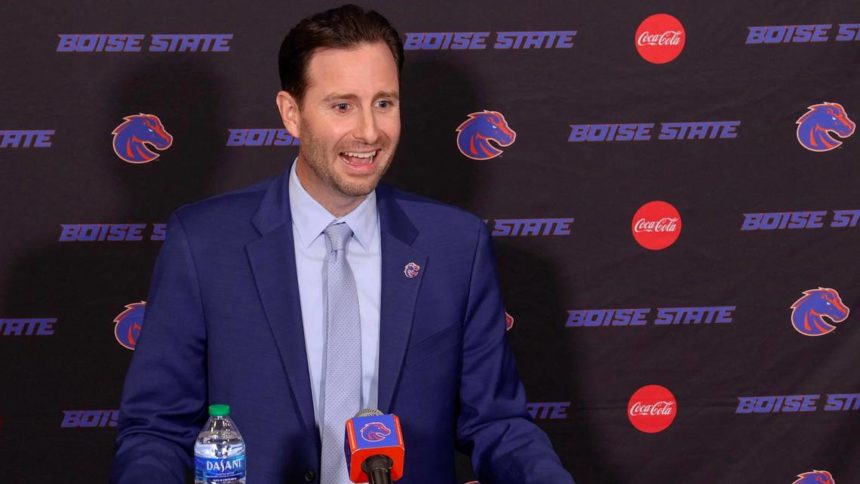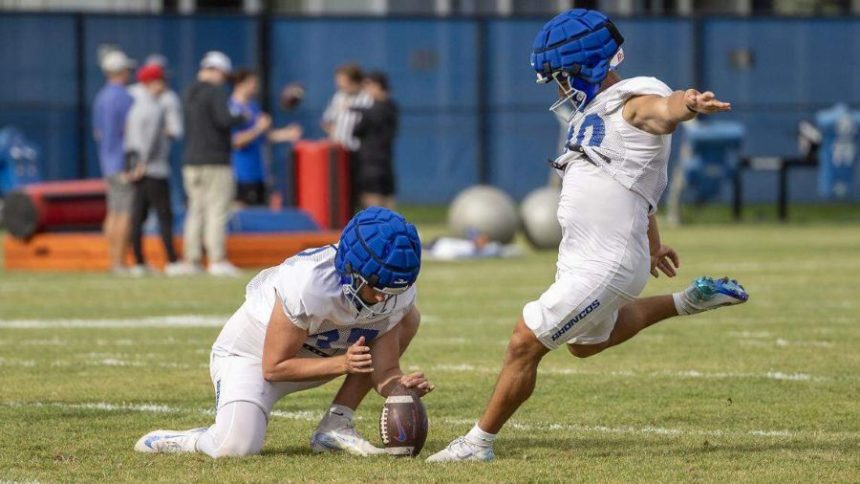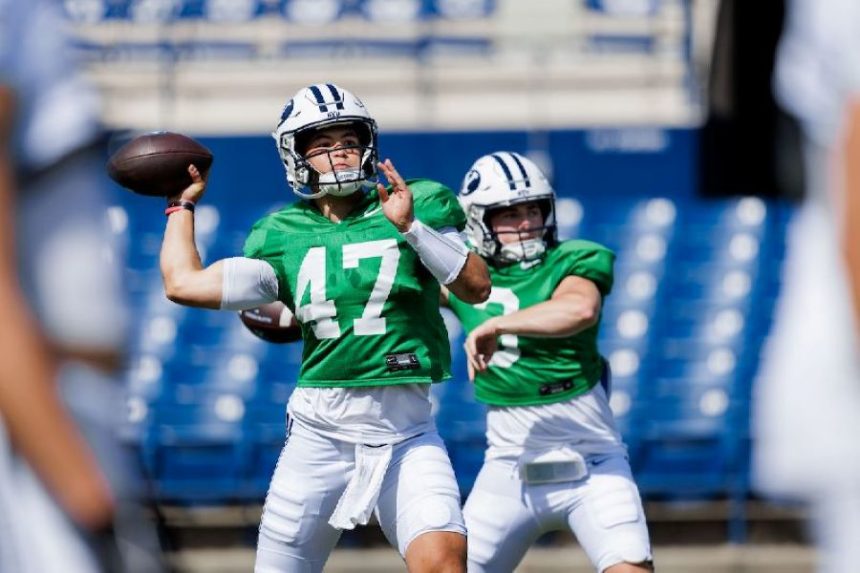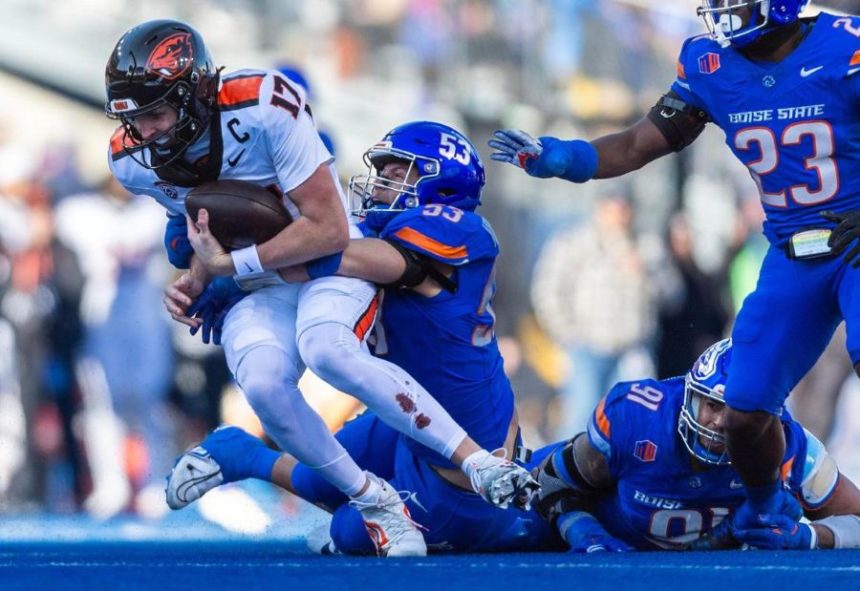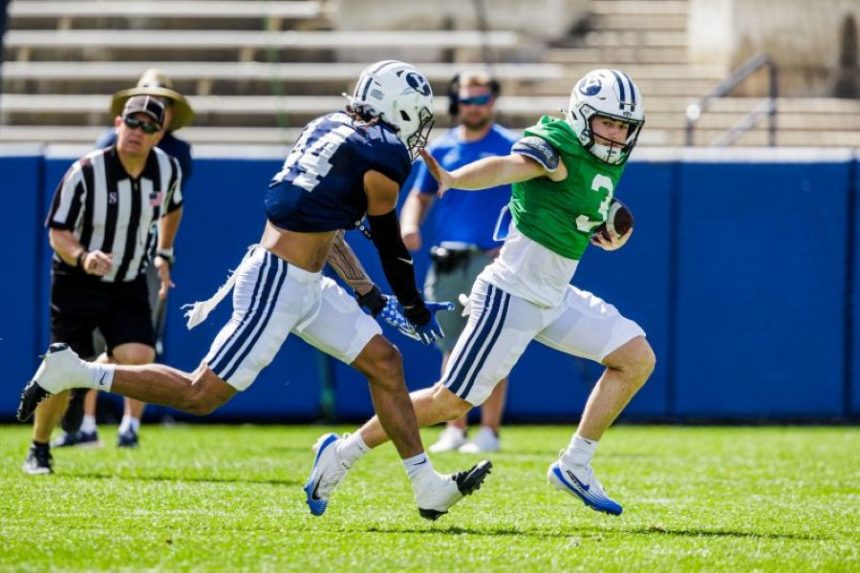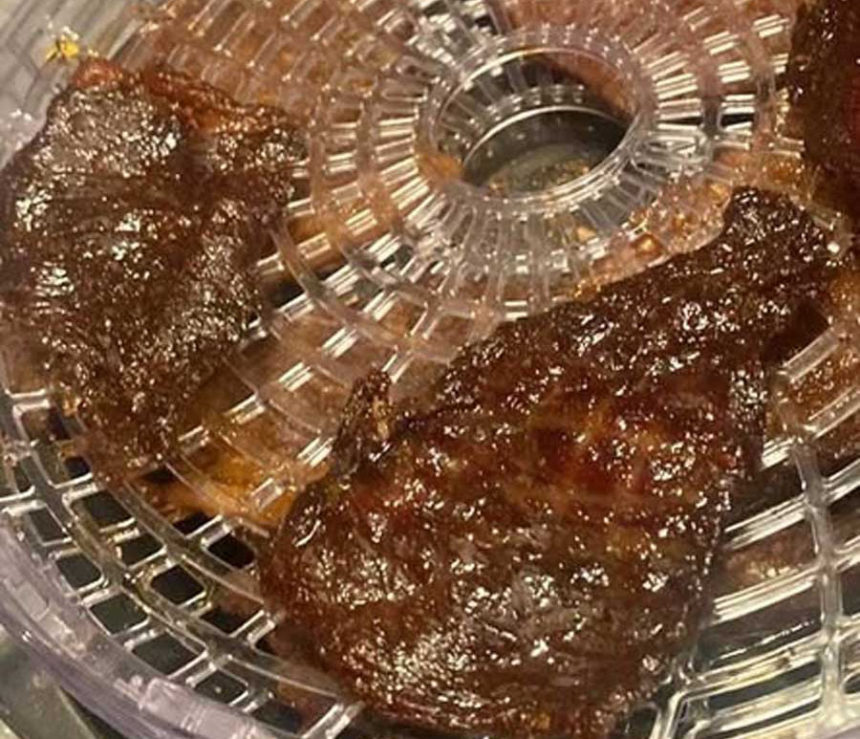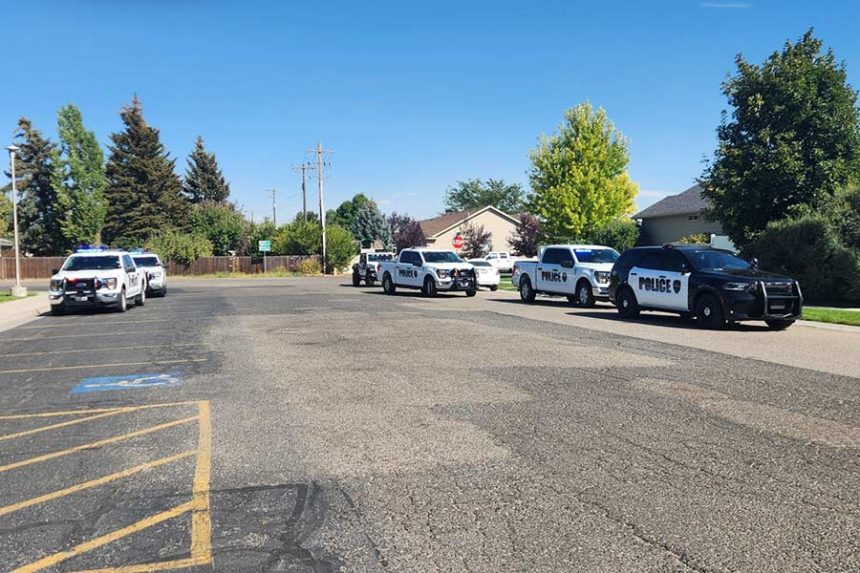LAS VEGAS, Nevada (
Idaho Stateman
) — For decades, the Pac-12 stood tall as the only Power Five conference in the West. It fondly called itself the “Conference of Champions,” boasting over 500 NCAA championships dating back over a century.
Its standing was propped up by historical and prominent programs and figures in major sports, from UCLA basketball’s seven consecutive national titles under John Wooden — and 10 overall — to USC football’s dominant run from the 1960s to the 2000s, with coaches like John McKay, John Robinson and Pete Carroll.
However, those two schools are now in the Big Ten, along with a slew of other historical Pac-12 programs that were scattered by the winds of college athletics, leaving behind an empty shell of a once-proud conference, with only Washington State and Oregon State standing.
Starting next July, Boise State and eight other schools, including the two holdovers, will revive the Pac-12. The only difference is that people are not really accepting the new Pac-12 as a power conference, as it lost that inclusion and moniker, and its associated influence, upon its dissolution.
Boise State Athletic Director Jeramiah Dickey is adamant that the new Pac-12, which will feature five Mountain West schools, remains a power conference.
He’ll frequently post about it on social media, and spoke with the Idaho Statesman at Mountain West media days in Las Vegas earlier this week about it.
“When you think about Power Four now, which I say is Power Five, when you think about it, it’s the teams that are representing in the NCAA Tournament and the CFP and bowl games that are having success,” Dickey said.
Multiple soon-to-be Pac-12 schools have enjoyed success in recent years, including Boise State’s trip to the College Football Playoff in 2024, its three straight NCAA Tournament bids and San Diego State’s run to the NCAA men’s basketball national title game in 2023.
Gonzaga, a basketball-only member, made it to nine consecutive Sweet Sixteens from 2015 to 2024 in men’s basketball, and has been in the national title game twice.
The fact that Dickey wants the Pac-12 to be considered a power conference isn’t just to be regarded as one of the cool kids. Power conferences have significantly influenced the college athletics landscape in recent years, from holding the voting power to determine whether schools can pay student-athletes directly to awarding themselves automatic CFP qualifying spots.
The Big Ten and SEC have recently been pushing for their conferences to have as many as four AQs for the playoffs, while non-power conferences are lucky to get one school in the playoffs.
Last year, it was Boise State who represented the Group of Six conferences as the highest-rated champion among those leagues.
Dickey ‘very vocal’ about what makes a power conference
However, while Dickey is trying to fly the power conference flag, he acknowledged that neither he nor the Pac-12 has ever been given any “parameters” on what a power conference should be.
“I’ve been very vocal about what are the parameters? What are the rules? Tell us what it takes and then let us do it. That hasn’t been defined yet,” Dickey said. “It’s a group in a room sitting there defining what our future looks like, without really giving us a set standard or defined expectations on what it actually means.”
Dickey said that Boise State football is “aligned with the Big 12” in terms of competitiveness, investment and innovation. A CNBC study from December 2024 showed that Boise State Athletics was valued at around $176 million in fiscal year 2023, putting it on similar footing as new Big 12 teams Cincinnati ($216 million) and Central Florida ($181 million).
Since then, the university has announced the Pac-12 move and earned $8 million for reaching the CFP quarterfinals last year.
Dickey doesn’t expect a decision to be made overnight, but he hopes that within the next three to five years, the conferences and commissioners can “get aligned” to give Pac-12 teams a consistent opportunity to compete.
“We’ve beaten a number of Power Four schools since I’ve been here, across our Olympic sports and even in men’s basketball,” Dickey said. “And it’s like, all right, so we compete with them, but they have this different designation. “We check a lot of boxes, and it’s only going to get better as Boise and Idaho continue to grow,” he continued. “And that gives me a lot of hope.”
